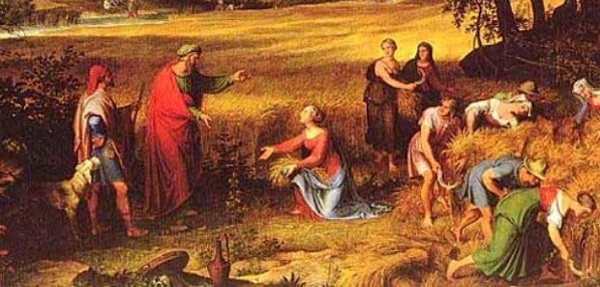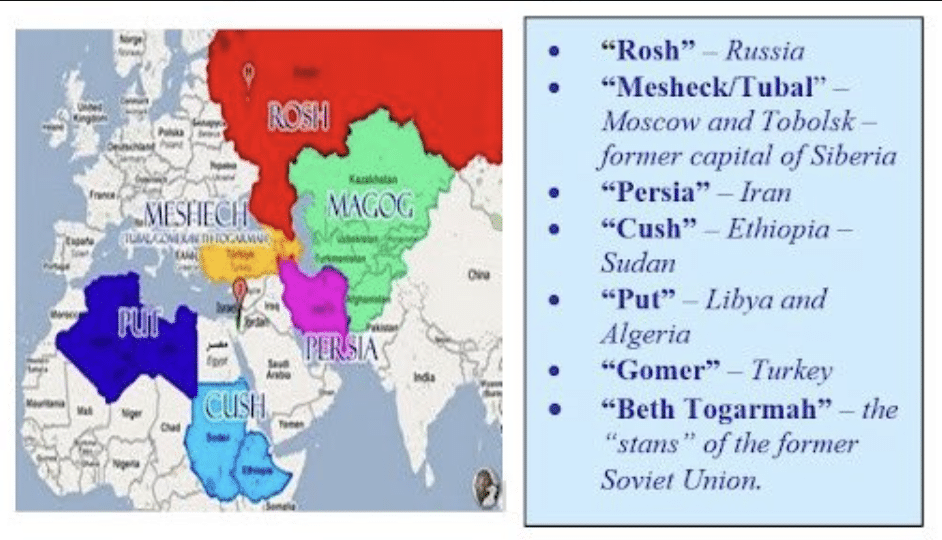“Where you go, I will go, wherever you lodge, I will lodge, your people will be my people, and your God will be my God.” Ruth 1: 16
By Christine Darg,
This time of quarantine is a period to determine loyalties from the contagion of sin: do we long for and cleave to the world’s systems, or do we perceive that we have been set apart by God, consecrated in this world and in the ages to come?
The word quarantine derives from a Latin word meaning “forty.” Originally it referred to a detention period of 40 days when isolation was imposed upon ships, persons, animals or plants upon arrival at ports, if they were suspected of carrying contagious disease.
Many prophetic believers see great significance of the global quarantines that took place during Passover and Holy Week and days of lockdown that are continuing now between Passover and the Hebrew festival of Shavuot, also known in the Christian world as Pentecost.
Is there a significance to these 40 days? During this time of isolation and reflection, God has been giving an altar call worldwide for people to return to Him and to acknowledge his Messiah while there is yet time before events that might trigger the Great Tribulation.
Forty is indeed a significant number in the Bible. The flood in Noah’s day lasted 40 days. For 40 years Moses lived on the backside of the desert. Moses spent 40 days on Mount Sinai to receive the Commandments. The Exodus of the Israelites lasted 40 years. Jesus fasted for 40 days. Jesus ascended to heaven on the 40th day of his resurrection, interrupting the counting of the omer (grain offering).
Theologians say 40 represents the time of preparing a person, or people, to for a mission or to make a fundamental change. People of faith are believing something significant will happen after these 40 days.
Actually, there are 50 days between the Resurrection of Jesus, which occurred on the First Fruits Holiday of Passover, leading up to Pentecost, which means 50. The seven weeks to Pentecost were the harvest season.
These 50 days between Passover and Pentecost are called the counting of the omer. An omer is a Hebrew unit of dry measure of grain. Pentecost is a Greek word meaning 50, because there are 50 days of counting. In Hebrew the Counting of the Omer is Sefirat Ha’omer, or The Day of Waving of the Omer.
The first day of counting, Resurrection Sunday, was called the Early Firstfruits when sheaves of grain were lifted and waved before the LORD.
The final day is called the Later Firstfruits or Pentecost by Christians and Shavuot (meaning Weeks) in the Hebrew Bible. Shavuot or Penteocst is the day that the Holy Spirit was sent upon believers in the Upper Room in Jerusalem as recorded in Acts 2. Many theologians believe that the Rapture could happen at this time, which would be symbolic of the fullness of the gentiles gathered into the Church, while others believe that the period between Pentecost and the fall Levitical festivals also represents the ingathering period and that the Feast of Trumpets, Yom Teruah, is the prophetic day and hour that no man knows (i.e. Rapture) because that holiday must begin when a new moon is sighted.
The resurrected Jesus interrupted the omer count on the 40th day when he ascended to heaven, leaving 10 days of omer counting unfulfilled until Pentecost. The New Testament says that when the day of Pentecost had “fully come,” in other words, when the 50 days were complete, the Holy Spirit was poured out on those who were assembled behind locked doors—just like the original Passover when all Israelites were locked down in their homes in Egypt, protected by the blood of the Passover Lamb.
This year between Resurrection Sunday and Pentecost we were homebound just as the apostles were locked in their Upper Room awaiting the Holy Spirit.
It’s our tendency to want to fast forward with our lives, but God deliberately pushed a pause button during the coronavirus. We had been living life at such a fast pace in this technological age that it was a blessing to be slowed down and to hear what God is saying and hopefully to revive and transform hearts.
On top of all of this, we’re living in a time of unprecedented revelation, a time when the prophet Daniel said many Scriptures would be unsealed. In the last chapter of the Book of Daniel, Chapter 12, Daniel wrote about the End Times:
“And I heard revelations but I did not understand; then I said, O my Lord, what shall be the end of these things? And he said, Go thy way, Daniel: for the words are closed up and sealed til the time of the end. Many shall be purified, cleansed and refined by trials, but the wicked shall do wickedly: and none of the wicked shall understand but the wise shall understand.”
A vitally important question is—Are you and I counted among “the wise who shall understand?” Are we open to receiving the unsealing of mysteries in these End Times?
If you have received the Lord, you are already wise. But clearly, we are promised that the wise will understand many revelations that have been sealed in the Bible.
Since the 50 days between Passover and Shavuot are a sacred time set apart in Holy Scripture, surely it is a concept for us to study!
During this time the omer is counted daily and there are scripture readings. There is a great count-down, or count up? to Pentecost!
Meanwhile, the Lord has been speaking to me that the Body of Messiah must recover EVERYTHING during this period that the enemy has stolen. The Lord took me to:
1 Samuel 30: 18-19 “And David recovered all that the Amalekites had taken and rescued his two wives….and nothing was missing, small or great, sons or daughters, neither spoil, nor anything that they had taken: David recovered all.”
Also, the Lord is coming for a Bride who is prepared, without spot or wrinkle. The Book of Ruth is read at Shavuot.
Shavuot 2020 begins at sundown on Thursday, May 28, and concludes at nightfall on Saturday, May 30.
The story takes place at harvest time, and Shavuot also occurs at the time of the spring harvest. Ruth was a Scripture type of the Bride of Messiah as she was a Gentile who was granted into the commonwealth of Israel. Ruth was a Moabite woman who, after her Judahite husband dies, follows her mother-in-law, Naomi, back to Bethlehem with the famous words “where you go, I will go, wherever you lodge, I will lodge, your people will be my people, and your God will be my God.” Ruth asserts the right of the poor to glean the leftovers of the barley harvest; she breaks the normal rules of behavior to confront her kinsman redeemer Boaz (a scriptural type of Messiah), and she is redeemed by him for marriage, and becomes the ancestor of King David.
May we always be ready for the Lord’s coming and be found working diligently in his harvest friend, bringing in the sheaves of precious souls!








Amazing, encouraging, uplifting… that our God has so coordinated details of the original Passover to this one and to that of our upcoming Pentecost! This connection you have made and so expertly laid out should put us all on HIGH ALERT – so important to KNOW THE TIMES and what to do 🙏 thank you for ALWAYS keeping us informed of where we are in His prophetic timeline
Thank you for your ministry and sharing your prophetic insight the world so needs to hear
The Lord Jesus Christ bless you all always
Praise the Lord
books-top (Education related) Free Ebook – books-top (Computers & Programming) Free Ebook, books-top (Reference) Free Ebook
My name is Terri and I have just recently discovered you and the Jerusleam channel i am so enjoying listening and learning more from you which is not by chance our Lord led me to you I know he has something to tell me please pray for a revelation for me from our Lord I have been a Born again believer since I was 29 years old I will turn 59 on August 20 this year I Stand with Israel and always will for they are God’s chosen people’s I feel led to one day visit the Holy Land feel he is calling me there God bless you and all your Family
rfef